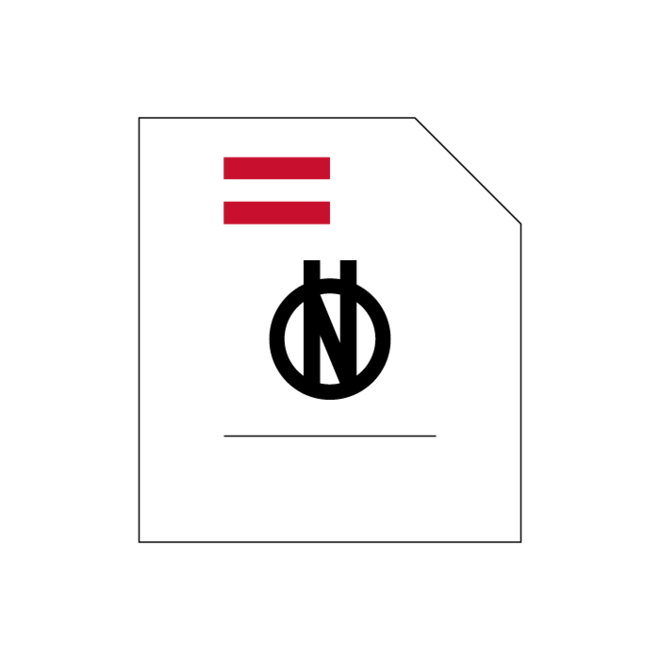Please select and order
€109.76
excl. VAT
Add to cart
Norm
ÖNORM EN 14035-38
Issue date: 2006 05 01
Fireworks - Part 38: Shot tubes - Specification and test methods
This European Standard specifies requirements for the construction, performance, primary packaging and
labelling of shot tubes and the corresponding test methods. It is ...
Withdrawn: 2010 11 01
Publisher:
Austrian Standards International
Format:
Digital | 34 Pages
Language:
German
| English
Currently valid:
Optionally co-design standards:
ICS
This European Standard specifies requirements for the construction, performance, primary packaging and
labelling of shot tubes and the corresponding test methods. It is applicable to fireworks which are classified as
shot tubes in categories 2 and 3 in EN 14035-2.
It is not applicable to shot tubes containing pyrotechnic composition which includes any of the following
substances:
- arsenic or arsenic compounds;
- mixtures containing a mass fraction of chlorates greater than 80 %;
- mixtures of chlorates with metals;
- mixtures of chlorates with red phosphorus;
- mixtures of chlorates with potassium hexacyanoferrate(II);
- mixtures of chlorates with sulfur;
- mixtures of chlorates with sulfides;
- lead or lead compounds;
- mercury compounds;
- white phosphorus;
- picrates or picric acid;
- potassium chlorate with a mass fraction of bromates greater than 0,15 %;
- sulfur with an acidity, expressed as mass fraction of sulfuric acid, greater than 0,002 %;
- zirconium with a particle size of less than 40 m.
NOTE In EN 14035-2, shot tubes are classified as follows:
- brief description: tube containing propellant charge and a pyrotechnic unit, with or without a transmitting
fuse;
- principal effects: ejection of the pyrotechnic unit, producing a visual and/or aural effect in the air.
Schemes for type testing of shot tubes and batch testing of shot tubes are specified in Annex A and Annex B
respectively.
ÖNORM EN 15947-5
2023 01 15
Pyrotechnic articles - Fireworks, Categories F1, F2 and F3 - Part 5: Requirements for construction a...
Norm
ÖNORM EN 15947-4
2023 01 15
Pyrotechnic articles - Fireworks, Categories F1, F2 and F3 - Part 4: Test methods
Norm
ÖNORM EN 15947-3
2023 01 15
Pyrotechnic articles - Fireworks, Categories F1, F2 and F3 - Part 3: Minimum labelling requirements
Norm
ÖNORM EN 15947-4
2016 02 01
Pyrotechnic articles - Fireworks, Categories F1, F2 and F3 - Part 4: Test methods
Norm
ÖNORM EN 15947-3
2016 02 01
Pyrotechnic articles - Fireworks, Categories F1, F2, and F3 - Part 3: Minimum labelling requirements...
Norm
ÖNORM EN 15947-5
2016 02 01
Pyrotechnic articles - Fireworks, Categories F1, F2, and F3 - Part 5: Requirements for construction ...
Norm
ÖNORM EN 15947-3
2010 11 01
Pyrotechnic articles - Fireworks, Categories 1, 2, and 3 - Part 3: Minimum labelling requirements
Norm
ÖNORM EN 15947-4
2010 11 01
Pyrotechnic articles - Fireworks, Categories 1, 2 and 3 - Part 4: Test methods
Norm
ÖNORM EN 15947-5
2010 11 01
Pyrotechnic articles - Fireworks, Categories 1, 2, and 3 - Part 5: Requirements for construction and...
Norm
ÖNORM EN 14035-38
2006 05 01
Fireworks - Part 38: Shot tubes - Specification and test methods
Norm
↖
Norm
Issue date :
1999 11 18
Sampling procedures for inspection by attributes — Part 1: Sampling schemes indexed by acceptance quality limit (AQL) for lot-by-lot inspection
Norm
Issue date :
2009 08 15
Cellular plastics and rubbers - Determination of apparent density (ISO 845:2006)
Norm
Issue date :
2003 09 01
Plastics and ebonite - Determination of indentation hardness by means of a durometer (Shore hardness) (ISO 868:2003)
Norm
Issue date :
2009 04 01
Flexible cellular polymeric materials - Determination of hardness (indentation technique) (ISO 2439:2008)
Norm
Issue date :
2010 11 01
Pyrotechnic articles - Fireworks, Categories 1, 2 and 3 - Part 4: Test methods
Norm
Issue date :
2010 11 01
Pyrotechnic articles - Fireworks, Categories 1, 2, and 3 - Part 5: Requirements for construction and performance
Norm
Issue date :
2010 11 01
Pyrotechnic articles - Fireworks, Categories 1, 2, and 3 - Part 3: Minimum labelling requirements




